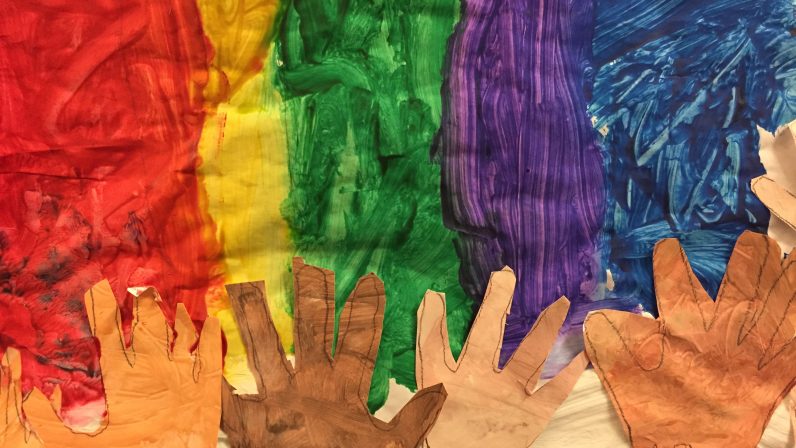Continuing the reflection about the Seed’s social justice lineage, I found this post about Elsie Moore in the archives. One of the most important lessons we all learned from her was the value of a continuing conversation about race and social justice. (reposted from the Awakening Seed general website, 1.25.18)
Last week I wrote about the Seed’s commitment to continuing the conversation about race and social justice. This week we stepped into it further. On Wednesday morning, our dear friend, Dr. Elsie Moore, paid a visit to the Seed and left us with much to ponder. Elsie is the director of ASU’s School of Social Transformation, as well as the proud mother of three Seed alums. For over 25 years, she’s come to the school to offer her perspective, through stories of her early life growing up in rural Virginia during the Civil Rights Movement. She has given generations of our students insights into what it feels like to grow up with discrimination, and offer a way to think about how to change these attitudes and behaviors. Her time this year with the 3rd/4th graders and a few related adults was heartfelt, inspiring, and thought provoking.
Elsie met with us for about an hour, recapping the stories she’s told before and offering new insights. Here are some of the themes that surfaced in our time together:
• establish relationships, find common ground especially with people who disagree with you
• decide what you want to stand up for
• step up, keep working on what you can change
• you can’t let another person’s problem be your problem (e.g. another person’s racist attitude)
• try to remind others we’re all humankind
• be attentive to the world around us
• use what you’ve learned at the Seed to resist injustice
• when you see wrong, use your words to speak out to make the world a better place
• everyone’s voice matters, talking makes a difference
• keep trying to connect/reconnect
After Elsie left, we took a short break and then returned to writing and talking about Elsie’s words. The conversation covered everything from DACA to nuances of skin color, slavery, and different types of discrimination. When lunch time arrived we had to finish up, and it was clear this was a conversation that would continue in the days and weeks to come.
As I stepped away from the morning’s experience, I asked myself what we can do as a school to make this work tangible and relevant to our young students. Certainly the conversations about respect, difference, celebrating uniqueness, and inclusion with continue. What stands out to me, after hearing Elsie’s words and the conversations that followed, is the importance of giving children specific guidance in how to use their voices. We know this starts with our tiniest toddlers and continues till our students’ final days at the Seed. With our preschoolers it’s a matter of teaching them how to use their words, stand up for themselves, advocate for others. As children move into the elementary grades, the focus shifts to seeing the world in a broader way so they can also learn to be advocates for social justice. They learn to be writers with voices that clearly articulate their thoughts and opinions.
The Seed is a small school in a big world. Our students have opportunities that many children of the world will never know. As I finished up with the 3rd/4th graders yesterday, I told them why I keep teaching writing year after year. Their voices give me hope for the future of our planet. We all have a responsibility to use our voices and I will keep using mine to help them find theirs. I hold on to the belief that it will make a difference.

